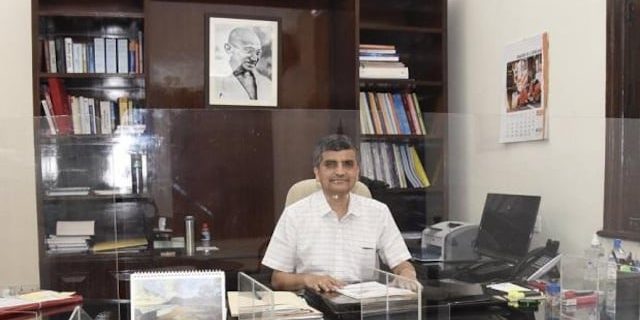The finance ministry has nearly completed its work on a planned consultation paper on cryptocurrency, and will submit the document soon, Economic Affairs Secretary Ajay Seth said on Monday.
Speaking at an event, Seth also said that India was better poised than other nations to deal with global inflationary headwinds and that inflation was expected to moderate in the coming months due to steps taken by the Centre, including cutting excise duties on petrol and diesel.
“The consultation paper is fairly ready. We have gone through a deep dive and consulted not just domestic stakeholders but also multilateral institutions like IMF and World Bank. We hope we'll soon be in a position to finalise and submit it,” Seth said.
He said that India was also engaging with other countries for global regulations on cryptocurrencies, and India's role in such actions.
A Bill to regulate cryptocurrency as a tradable asset is yet to be tabled, although it was first listed in the 2021 budget Session of Parliament. What is clear is that private crypto assets will not be allowed as legal tender, and the Reserve Bank of India (RBI) is developing its own Central Bank Digital Currency (CBDC).
Finance Minister Nirmala Sitharaman has clarified that the Centre will table the regulations in Parliament only after extensive discussions with local and global stakeholders and other nations. The consultation paper is part of that process.
Speaking on other issues, Seth acknowledged that inflation was hurting the economy of all countries including India. However, he stressed that India's fundamentals were strong and it would still be the fastest-growing among major economies in FY23. Seth added that inflationary pressures were expected to come down in the coming months.
India's wholesale price index (WPI)-based inflation rate rose to the highest level in the current 2011-12 series at 15.08 per cent in April on the back of hardening commodity and vegetable prices.
With this, the WPI-based inflation has been in double-digits for 13 consecutive months.
Retail inflation, meanwhile, measured by Consumer Price Index (CPI), galloped to a 95-month high in April at 7.8 per cent, paving the way for more policy rate hikes by the central bank.






